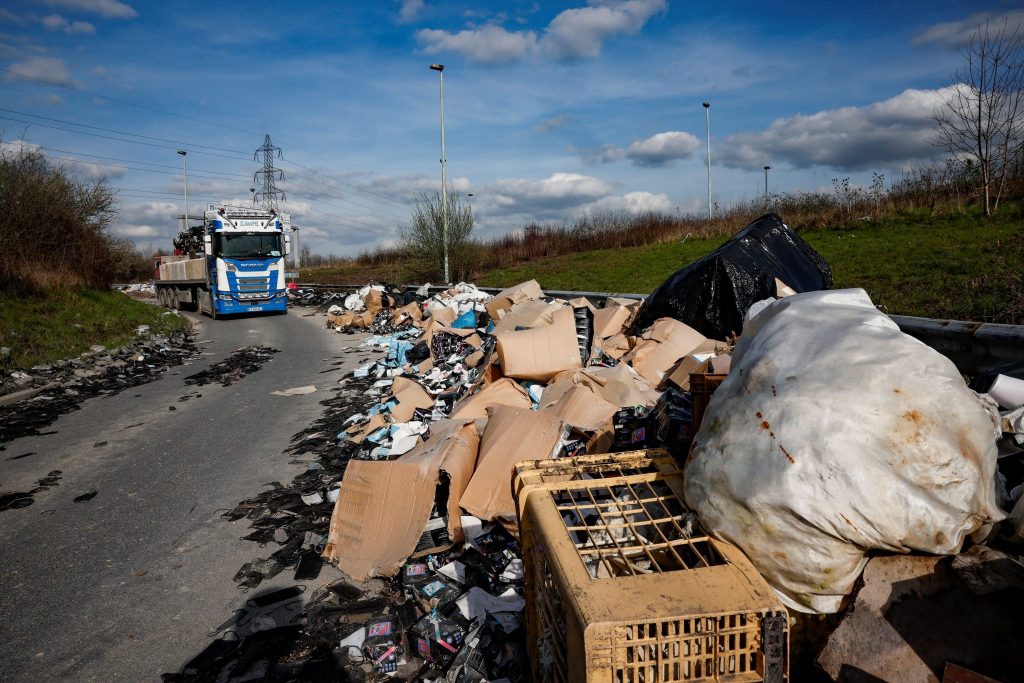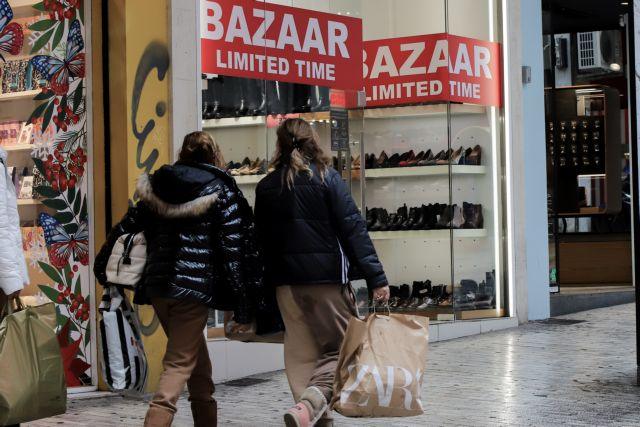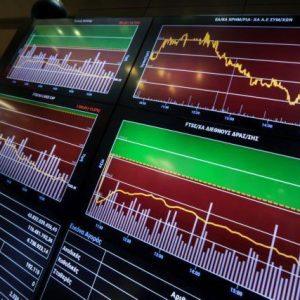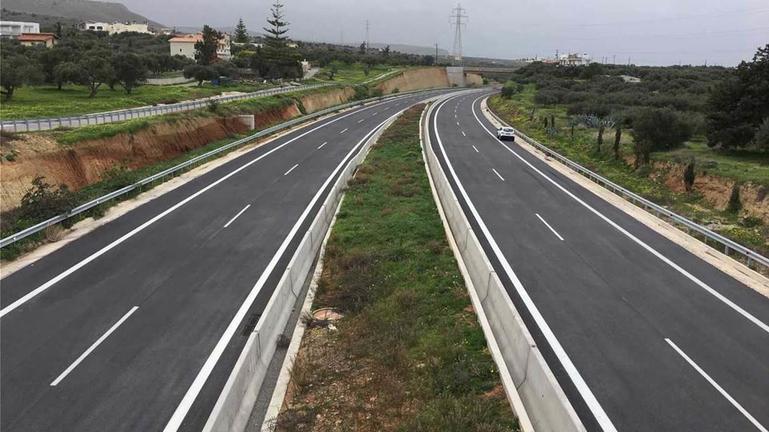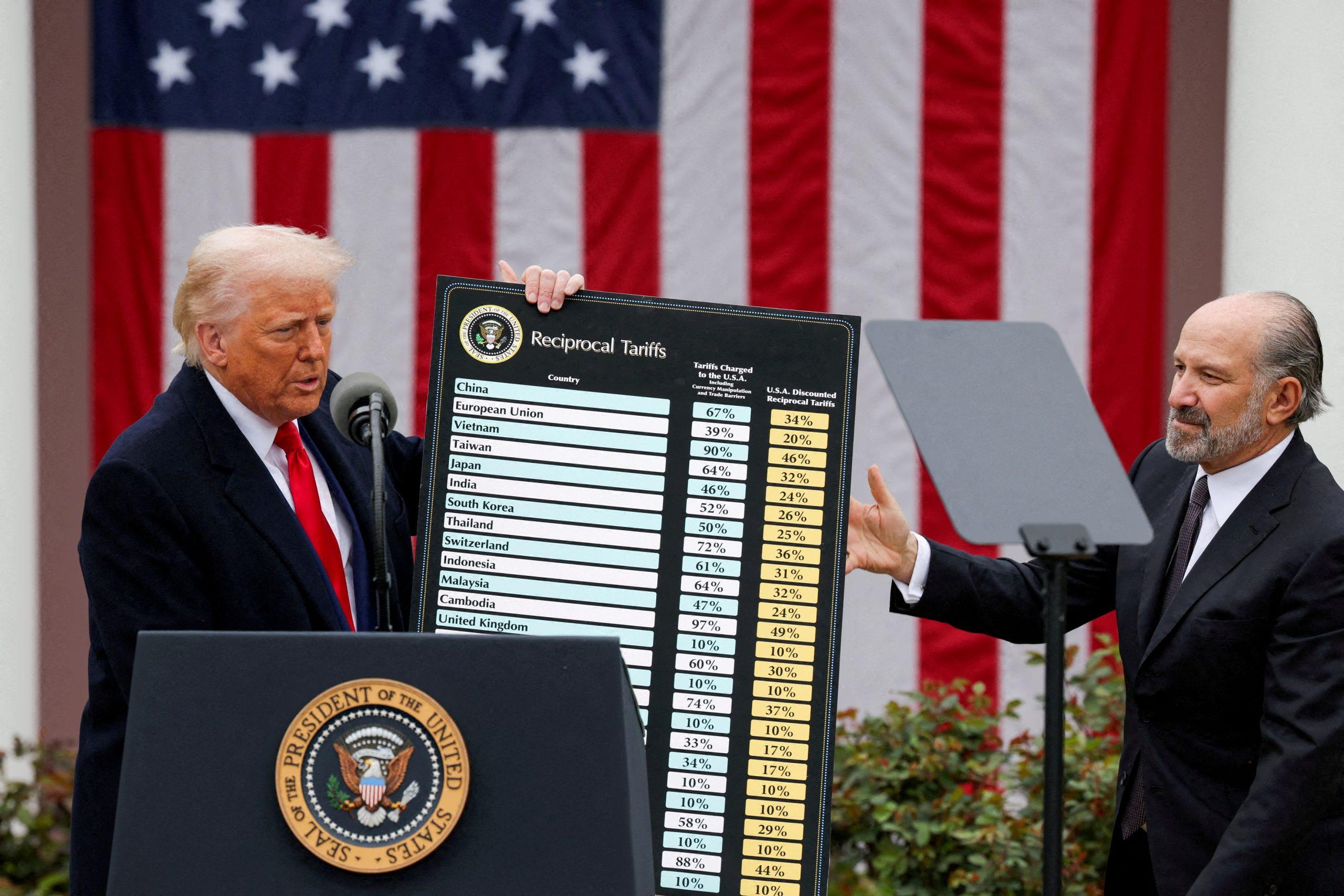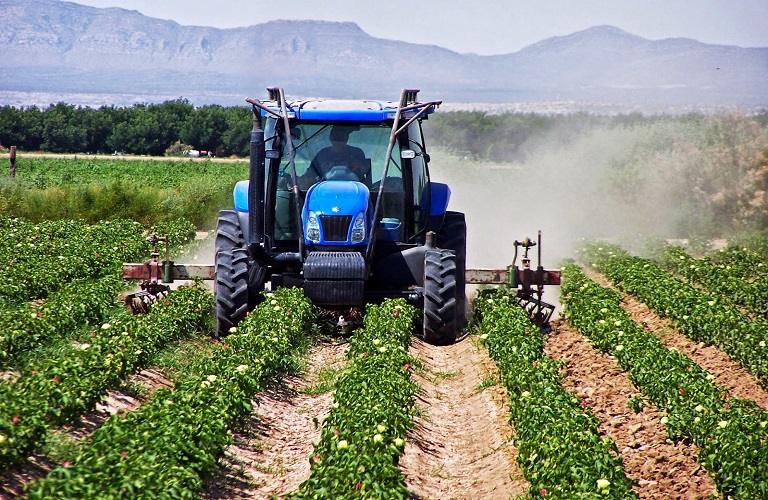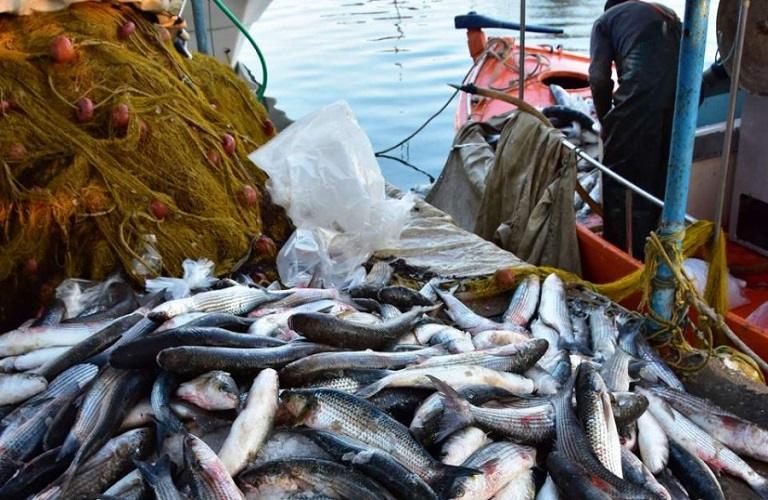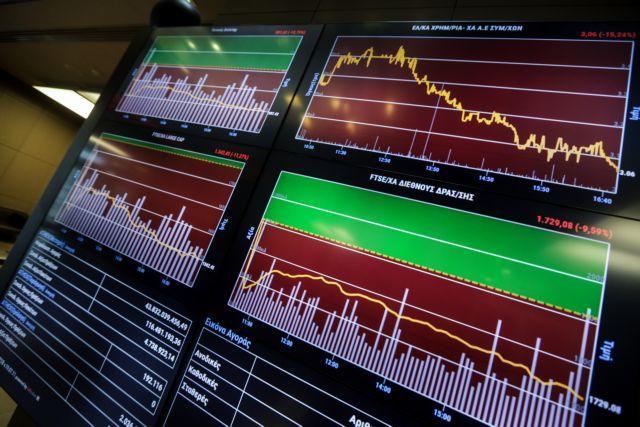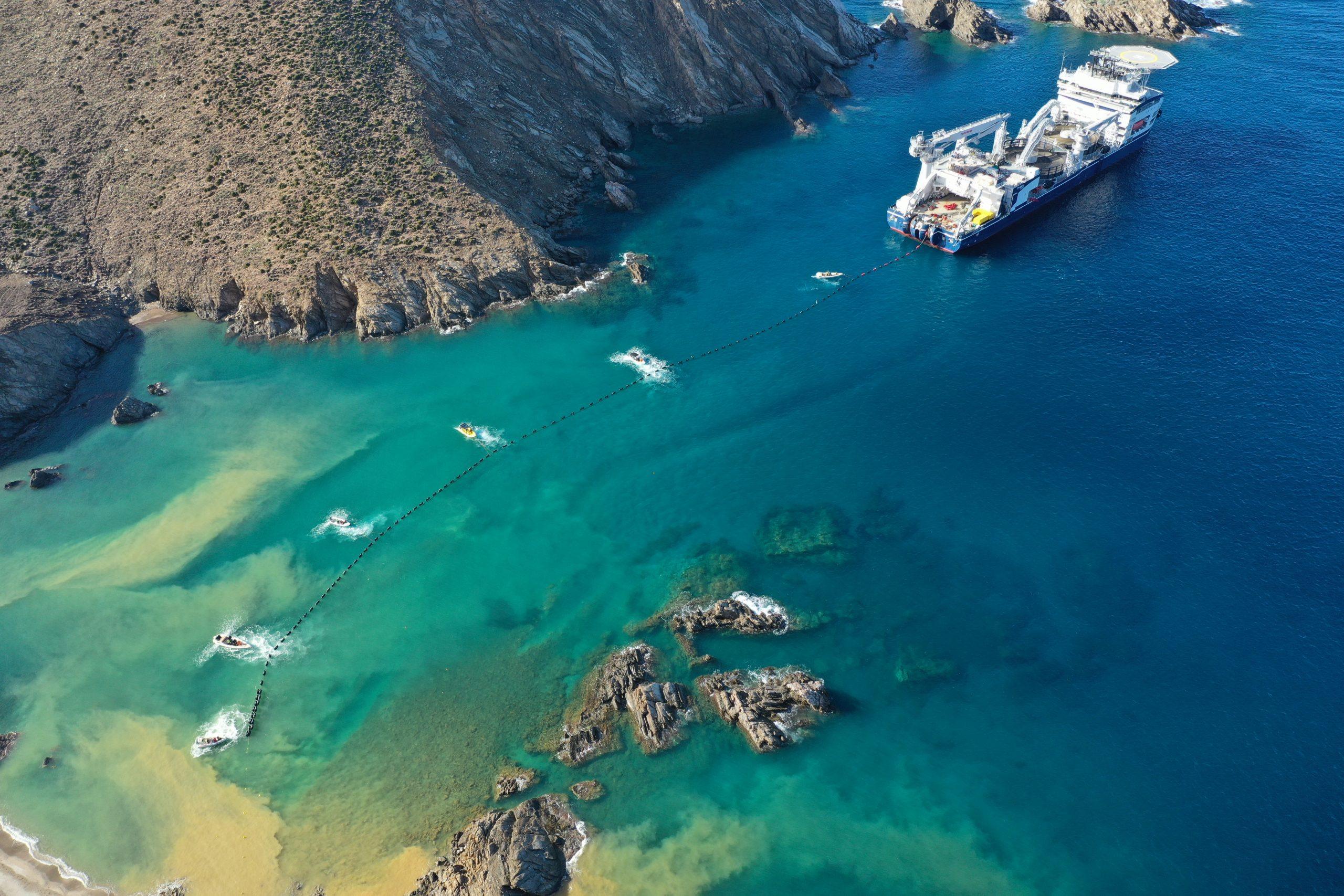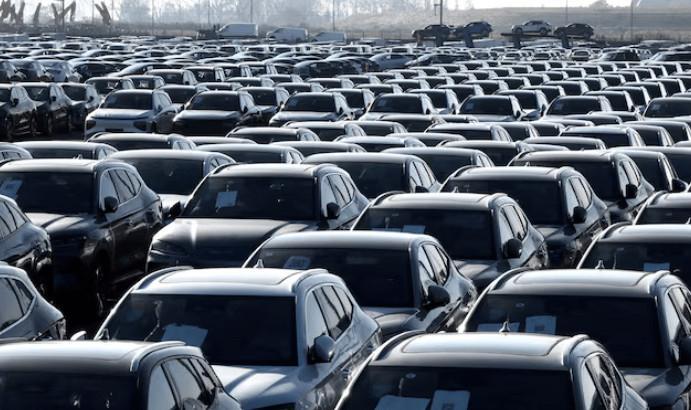Today, March 30, has been designated International Day of Zero Waste by the United Nations (UN), in an effort to highlight the importance of waste management globally and to encourage people to embrace sustainable consumption and production patterns.
Trash Production Worldwide
According to the UN, every year the world produces between 2.1 -2.3 billion tons of municipal solid waste.
And unfortunately, around a third of mankind has no access to waste collection, particularly those living in rural areas.
The UN notes that “waste pollution significantly threatens human well-being, economic prosperity, and the triple planetary crisis of climate change, nature and biodiversity loss, and pollution.”
And it estimates that, without bold action, municipal solid waste generation will hit 3.8 billion tonnes annually by 2050.
Moreover the World Bank highlights the imbalance of waste generation throughout the world, with over 34% of the world’s trash coming from just 16% of the world’s population- the high income countries.
Waste in the EU and Greece
According to EUROSTAT, many EU countries marginally reduced municipal waste in 2022 when compared to 2021 (which is the last year that figures are available). And recycling rates have improved but are generally slowing.
In 2022, municipal waste generated per person in the EU was 513 kg, which was 4% (19kg) less than in 2021 but 46 kg more than in 1995.
Citizens from Austria, Denmark and Luxembourg produced the most waste while Romania, Poland and Estonia the least. Greece was in the middle of the pack and around the EU average, producing just over 500 kg per person.
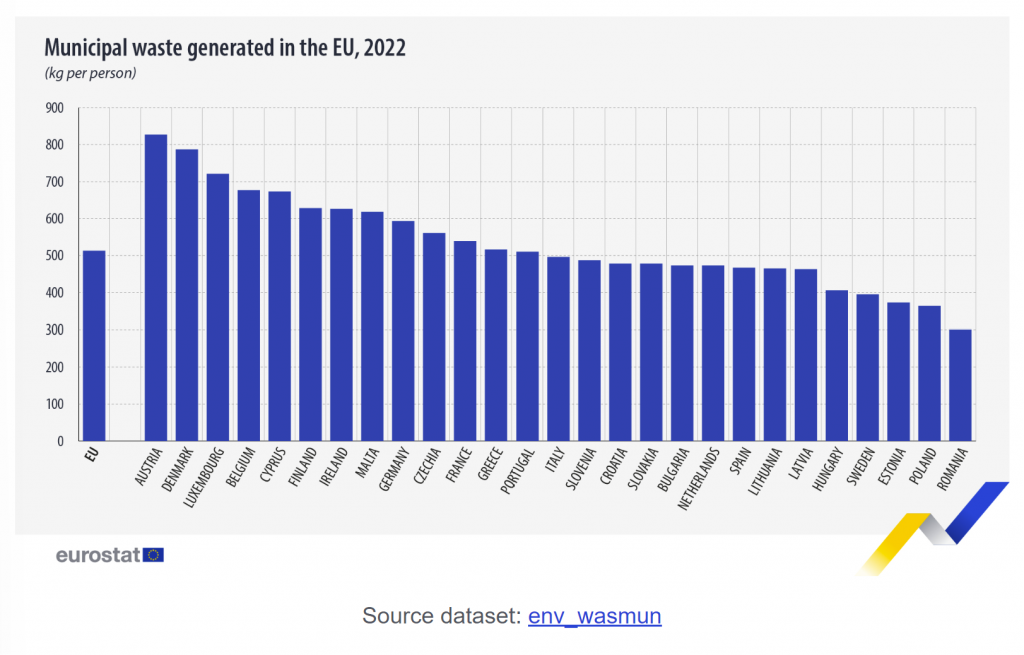
Taking a look at recycling rates however, EUROSTAT shows that the average EU citizen recycled 249 kg per person, which is less than they did in 2021, which came in at 264 kg per person.
Austrians recycled the most at 516 kg per person while Greece was at the bottom of the pack in third-to-last place recycling 90 kg per person in 2022.
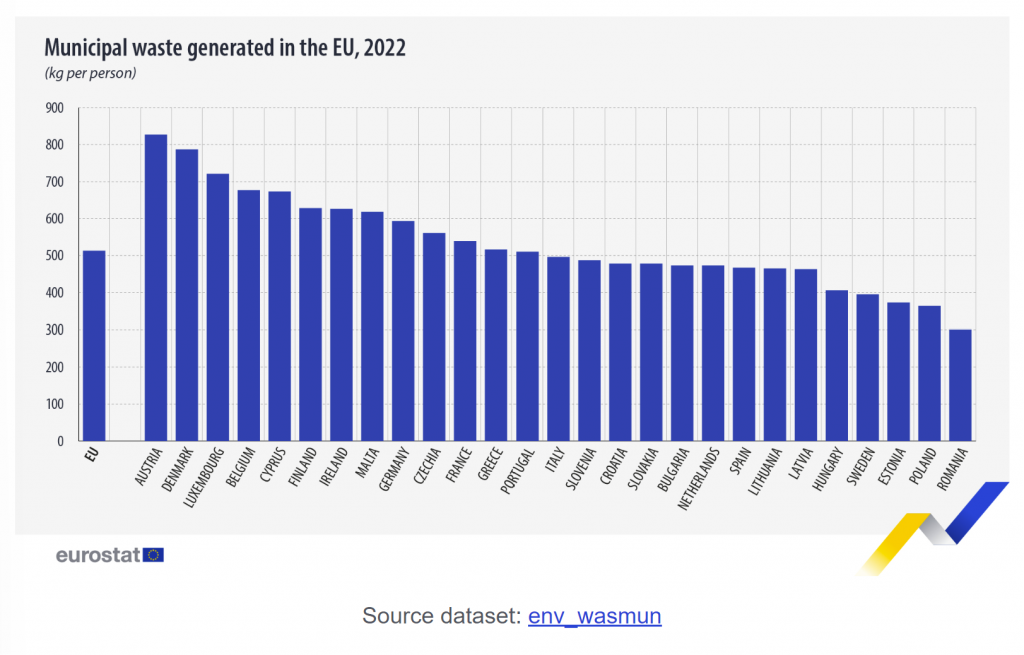
Greece: Steps in the Right Direction
Today at the annual Verde Tec exhibition in Attica, the General Secretary for Waste Management Coordination of the Ministry of Environment and Energy of Greece Manolis Grafakos stated that Greece is committed to upgrading its performance in the area of waste management, to join the ranks of better performing peers in the EU.
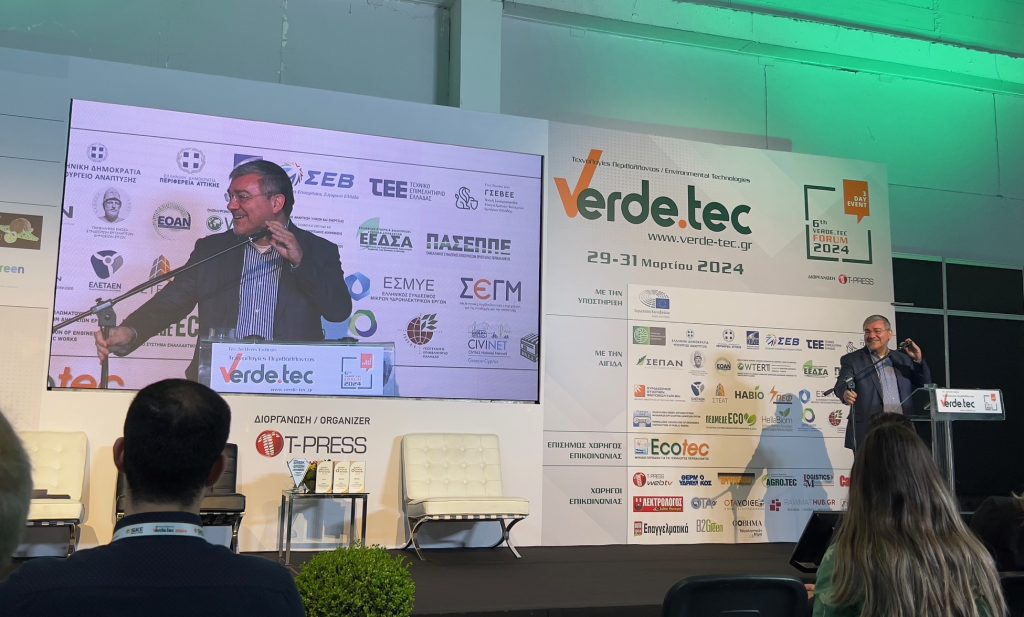
He noted that Greece had tried to implement “pay as you throw” policies around trash management in the past, but that they failed for a number of reasons including inadequate funding.
Pay as you throw is a method of disposing of municipal solid waste where users are charged a rate based on how much waste they present for collection to the municipality or local authority.
The Greek government is doubling down on efforts and will try, again, to launch the “pay as you throw” approach, says Grafakos, and this time there is money available for municipalities.
Greek Zero Waste Tech Goes Global
While there is room for improvement for Greece’s processing of trash, the country has success stories, such as Tilos island.
Tilos became Greece’s first Zero-Waste certified municipality and the world’s first zero-waste certified island.
The project on Tilos is called “Just Go Zero Tilos” and is run by Polygreen. The project was presented at last year’s COP 28 in Dubai and has even led the company to a joint venture between Polygreen, Aldar and Tadweer where the JV will implement a zero-waste program called Ecoloop for waste management in the city of Abu Dhabi.
Source: tovima.com
